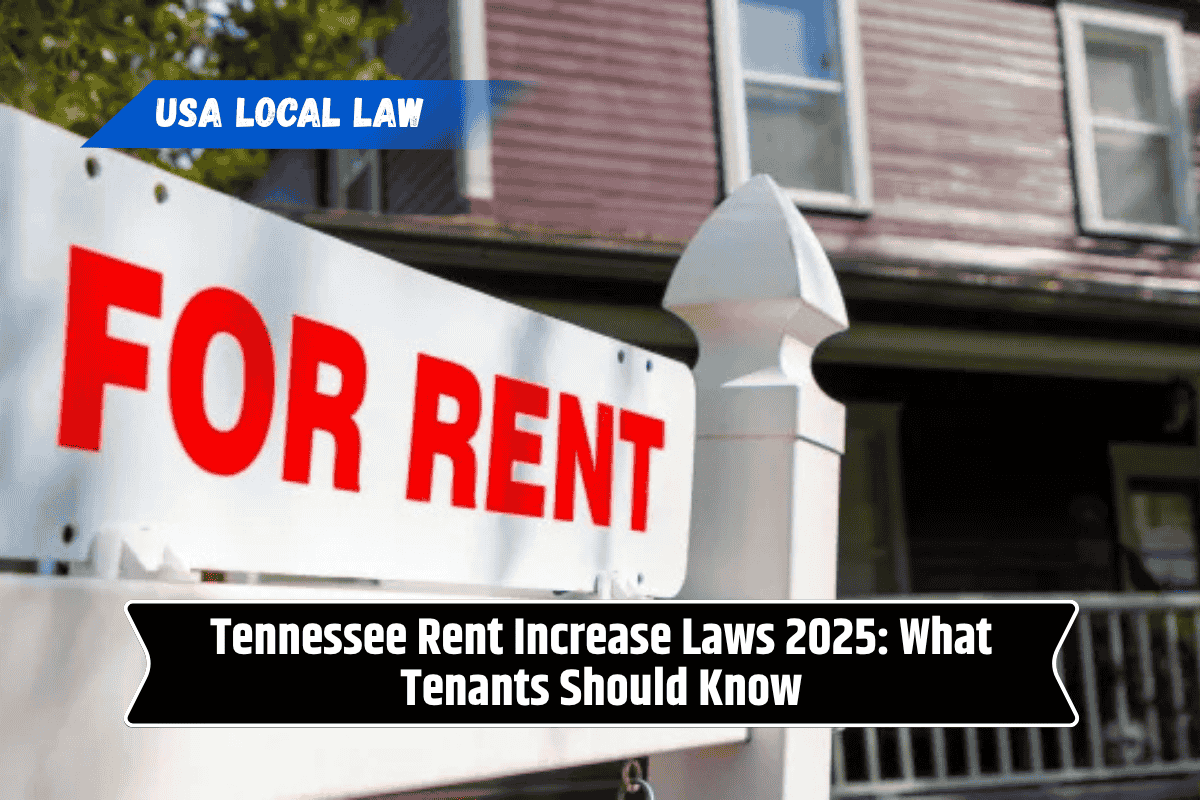Renting a home or apartment in Tennessee? With 2025 bringing changes in housing trends and costs, it’s important for tenants to understand their rights when it comes to rent increases.
Tennessee’s rental laws are more landlord-friendly compared to some other states, so knowing what landlords can and cannot do will help tenants stay informed and prepared.
In this article, we’ll explain the Tennessee rent increase rules in simple, clear terms—especially what’s new in 2025—and what renters should expect.
No Rent Control in Tennessee
Tennessee does not have rent control. This means landlords are allowed to raise the rent as much as they want once a lease ends. Unlike states like California or New York that limit rent hikes, Tennessee gives landlords freedom to decide rental prices.
The only limit is the lease agreement itself. If you’re in a lease for 12 months, your landlord can’t raise the rent during that time unless the contract says otherwise.
How Much Notice Is Required?
While there’s no cap on rent increases, landlords must give proper notice before raising the rent. As of 2025, the law still follows these rules:
Month-to-Month Leases:
Landlords must give 30 days’ written notice before increasing rent.
Fixed-Term Leases (e.g. 12-month lease):
Landlords cannot raise rent until the lease ends, unless the lease itself allows it. Once the lease is over, the landlord can propose a new rental amount for the next term.
So if your lease ends on June 30, and the landlord wants to increase rent starting July 1, they must notify you in advance (usually around 30 days before, depending on the situation).
Can Rent Be Raised for Any Reason?
Yes, in most cases. Tennessee law doesn’t require a reason for increasing rent. Landlords can raise rent due to higher costs, market value, or even to encourage tenants to leave, as long as it’s not for illegal reasons.
Landlords cannot raise rent to discriminate against tenants based on race, religion, gender, disability, or family status. This is protected under the Fair Housing Act.
What About Rent Increases During a Lease?
Unless your lease agreement includes a specific clause allowing rent adjustments mid-lease, rent cannot be raised during a fixed lease term. If the landlord tries to increase rent before the lease ends and it’s not in the contract, tenants have the right to refuse.
Always read your lease carefully to check for any special terms.
Rent Increase in Subsidized or Public Housing
If you live in subsidized housing (like Section 8), your rent is usually based on your income. Rent changes must follow federal guidelines. Landlords in such programs cannot raise rent freely like in private rentals. These increases are controlled and reviewed by housing authorities.
What Should Tenants Do if Rent Is Increased?
If your landlord gives proper notice and you’re not in a fixed lease term, you’ll need to decide whether to accept the new rent or move out. You have the right to:
Negotiate: Politely ask if the increase can be lowered or delayed.
Request details: Ask why the rent is increasing. While the landlord doesn’t legally have to tell you, it can help you understand their reasoning.
Plan ahead: If you can’t afford the new rent, start looking for other housing options early.
In 2025, Tennessee continues to follow landlord-friendly laws when it comes to rent increases. There are no limits on how much rent can be raised, but landlords must provide written notice and follow lease agreements.
Tenants should stay alert, understand their rights, and communicate clearly with landlords when facing a rent hike. Reading your lease carefully and knowing the laws can help you make the best decision for your situation.
